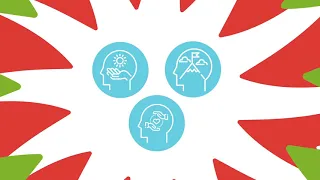What it means to take a life-dimensional approach to wellbeing
No one would argue that what makes someone a person is complex.
It includes things like their career, hobbies, roles within their family unit, and roles within the larger community. But when it comes to health, too often there’s a push to go with a simple biological answer.
But there is nothing simple about a person’s ability to get and stay well. It’s tied to everything from where they live and their ability to get fresh food from a grocery store to the emotional toll of caring for an elderly parent. Job, community, family, and emotional health all impact a person’s ability to achieve health. Which is why focusing only on the person’s physical condition is problematic: how can you add more outdoor exercise to your daily routine if you live in a neighborhood that’s unsafe?
This is why, unlike traditional offerings, we take a life-dimensional approach.
WellSpark was built to address the needs of the modern workforce, specifically those groups with economically diverse, multicultural, long-tenured employee populations who struggle with their health. For us, it’s about understanding each person as the sum of everything in their life—the biological, psychological, and social factors that intersect and determine their health.

This approach peels back the layers to see how everything connects in a way that leads to meaningful change. That means personalized guidance, working with each person to understand what behaviors or changes to their routine a person is willing and able to make. It also means applying cultural competency—understanding how a person’s background shapes their behaviors and beliefs then adapting our guidance to reflect them. And it means thinking about how we can build on small victories to achieve lasting health over time.
But beyond any of that, our life-dimensional approach is often the first time in a long time (or ever) that someone is tasked with improving their health has taken the time to really understand them as a human being. It’s how we build trust so we can ask the harder questions. We know that asking someone to change isn’t an easy conversation, but neither is being the one told to change. But, by starting from a place of compassion and of collaboration, without judgment, our participants know we’re going to be there every step of the way. With support and personalized direction, they build self-management skills, establish healthier behaviors, and learn how to achieve a more enduring well.
